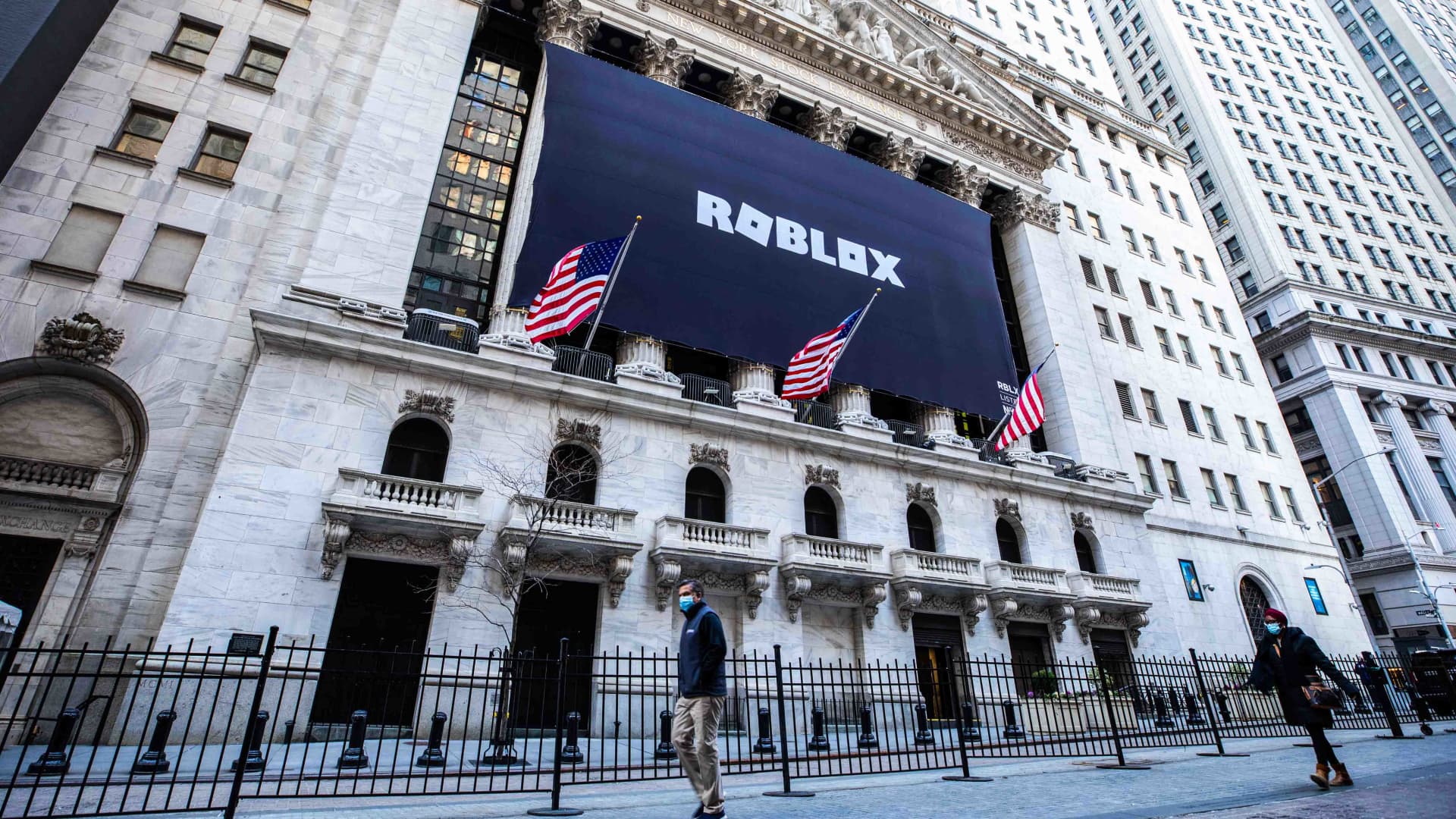Products You May Like
Shares of Roblox fell more than 15% in premarket trading Wednesday after the company reported a third-quarter loss but beat analyst estimates for bookings revenue.
Here’s how the company did:
- Loss per share: 50 cent loss vs. 35 cent loss per share expected, according to Refinitiv
- Revenue (bookings): $702 million vs. $686 million expected, according to Refinitiv
The revenue figure is what Roblox calls bookings, which include sales recognized during the quarter and deferred revenue. Bookings rose by 10% year over year. The company generates revenue from sales of its virtual currency called Robux, which players use to dress up their avatars and buy other premium features in the games.
Roblox reported 58.8 million average daily active users, up 24% from a year earlier, and up from the 52.2 million daily active users it reported in its second quarter. Users spent more than 13.4 billion hours engaged in Roblox during the third quarter.
Roblox said average bookings per daily active user was $11.94, down 11% year over year.
The company saw bookings swell more than 200% during the pandemic when kids were spending more time on their screens while stuck at home. The stock was blazing hot in 2021, after Roblox’s direct listing in March. Its market cap neared $80 billion before peaking in November 2021. Shares are down about 62% so far this year.
Roblox will hold its quarterly call with investors at 8:30 a.m. ET on Wednesday.
